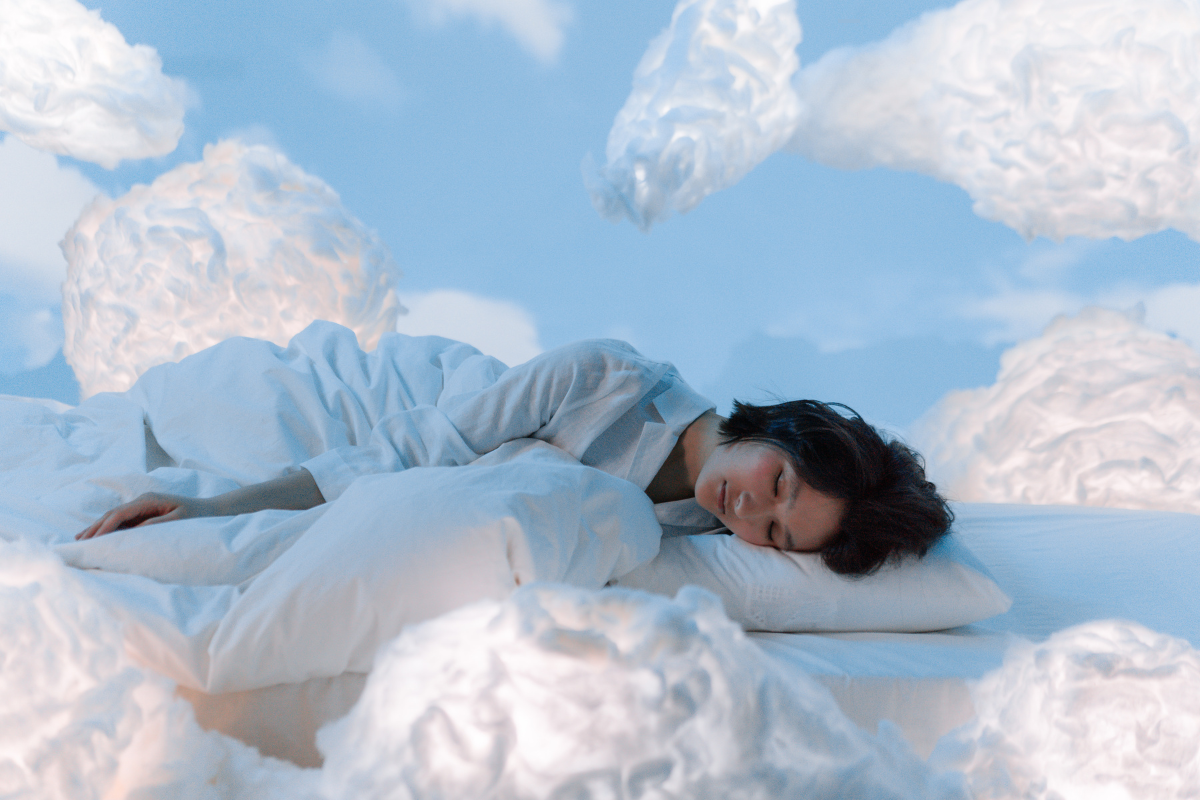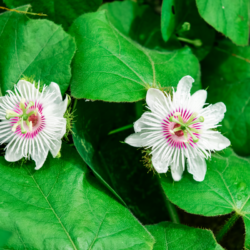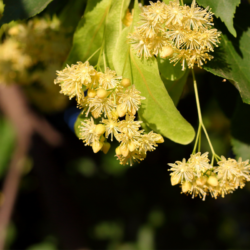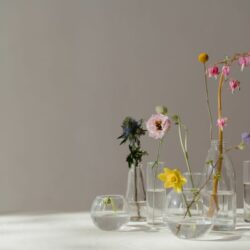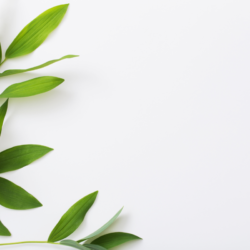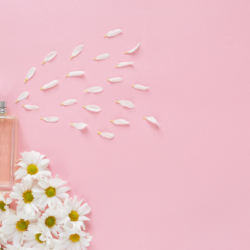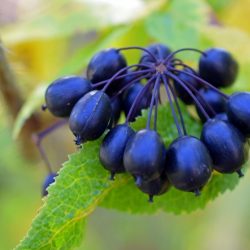Sleep plays an essential role in our well-being. Yet many people have difficulty falling asleep or suffer from sleep disorders. Rather than turning to sleeping pills, which often come with side effects, medicinal plants offer a natural and effective alternative. In this article, discover the best medicinal plants to help you fall asleep and improve the quality of your sleep.
1. Lemon balm(Melissa officinalis): a soothing remedy for quality sleep
Lemon balm is a perennial plant with small, oval, embossed, serrated leaves that give off a sweet, lemony scent when crumpled. Lemon balm is sometimes confused with a species of catnip, catnip, whose scent and flower are different from those of Melissa officinalis.
Why does lemon balm help you sleep?
Lemon balm is renowned for its calming effect on the nervous system. It reduces stress and anxiety and promotes faster, more restful sleep. Its effects are even more powerful when combined with valerian. As is often the case in phytotherapy, lemon balm’s action is linked to the presence of several active substances (rosmarinic acid, geraniol, etc.).
How can it be used to help you fall asleep?
- As an herbal tea: infuse 2 teaspoons of dried leaves in a cup of hot water for 10 minutes. Drink before bedtime.
- Capsules: Available as a dietary supplement, it is generally taken as a course of treatment over several weeks.
- As a liquid extract: Take 20 to 25 drops diluted in a glass of water, 2 to 3 times a day.
Precautions for use
Not recommended for pregnant women or people with thyroid problems.
It may interact with certain sedative and psychotropic drugs. Lemon balm may reduce alertness and be dangerous when operating machinery or driving.
It may increase intraocular pressure and interfere with thyroid hormone treatments, requiring medical supervision.
2. Linden(Tilia platyphyllos): a natural sleep ally
Linden is one of 34 medicinal plants legally available over the counter in France. It is a fast-growing tree with an ovoid top, very branchy, reaching 15 to 18 metres in height when fully grown, and with fairly wide-spreading branches. All parts of the tree are used: flowers, leaves, buds and sapwood (the young part of the trunk).
Why choose linden to help you sleep?
Linden acts as a natural sleep regulator. It calms the nervous system and makes it easier to fall asleep without becoming habit-forming. Its sedative and anxiolytic properties help you to relax and fall asleep when you are agitated, stressed or nervous. It also improves sleep quality, particularly in children with disturbed sleep and nightmares.
How can it be used to promote a good night’s sleep?
- As an infusion: Infuse 1 tablespoon of lime blossom in a cup of hot water for 10 minutes.
- As a decoction: Boil Linden sapwood in 1 litre of water for 10 minutes, then filter and drink.
- As a bud macerate: 25 to 100 drops per day diluted in water.
Precautions for use
Avoid in cases of gallstones or urinary stones.
Not recommended for children under 4 years of age.
3. Lemon Verbena(Lippia Citriodora): a medicinal plant for relaxed sleep
Lemon verbena or scented verbena is a small shrub with a woody main stem, 1 to 3 m high, and deciduous leaves. The main components of lemon verbena essential oil are nerol and geraniol, two isomers of citral (30-35%). It is grown for its highly fragrant, lemon-flavoured leaves. They are traditionally used to relieve various health problems.
What benefits does it have for sleep?
Lemon verbena reduces anxiety and improves sleep quality. It is also known for its digestive properties. Lemon verbena leaves are rich in polyphenols, the most abundant of which is verbacoside, a phenylpropanoid. Phenylpropanoids have antioxidant, anti-inflammatory and antimicrobial properties, but they also have an impact on sleep.
How can you use it to improve your nights?
- As an herbal tea: 1 to 2 teaspoons of dried leaves in a cup of hot water.
- Capsules: 1 capsule before bedtime.
- As an essential oil: dilute in a vegetable oil for a relaxing massage.
Precautions for use
Not recommended for pregnant women or children under 8.
May be irritating to the skin.
4. Orange Blossom(Citrus aurantium): a natural sleep aid
Orange blossom or bitter orange blossom is the fragrant white flower of the sour orange tree (Citrus aurantium L.). Several parts of the orange tree are traditionally known for their properties. The leaves and precious flowers are known to be sedative, as are the various essential oils extracted from them.
Why use it to improve your rest?
Orange blossom water is renowned for its soothing effects. It contains a number of bioactive compounds, including essential oils, which give it many therapeutic properties. It helps reduce nervousness and promotes deep sleep thanks to its powerful calming and soothing properties and its effect on the central nervous system.
How can it be used to help you fall asleep?
- As an herbal tea: infuse 1 tablespoon of flowers in hot water for 10 minutes.
- As a hydrosol: a few drops in a glass of water before bedtime.
- As an essential oil: Diffuse in the bedroom before going to bed.
Precautions for use
Avoid in cases of citrus allergy.
Do not use pure essential oil on the skin.
5. Chamomile(Matricaria recutita): ideal for insomnia and anxiety
Chamomile, also known as German chamomile, is a medicinal plant that has been used for centuries for its many health benefits.
The namematricaria comes from “matrix“, which means “matrix, mother, womb”. In ancient times, chamomile was used to soothe painful periods and facilitate childbirth. The word “camomile” comes from the contraction of “chamos” meaning “soil” and “melos” meaning apple, in reference to its sweet apple scent.
Why choose camomile for sleep disorders?
It has calming, relaxing and mild sedative properties. It should therefore be chosen whenever you want to act on sleep disorders and anxiety. It can also be used for hyperactivity (especially in children), mild depression, stress, insomnia, nightmares, irritability, stress headaches, etc.
How can it be used to help you sleep better?
- As an herbal tea: Infuse 1 tablespoon of dried flowers in 150 ml of hot water.
- As an essential oil: dilute in a vegetable oil for a relaxing massage.
- As a mother tincture: 20 drops in a glass of water 2 or 3 times a day.
Precautions for use
Not recommended for people allergic to Asteraceae.
Avoid during pregnancy.
6. Passion flower(Passiflora Incarnata): a powerful natural relaxant
This voluble vine can grow to over 4 metres in height. It has a magnificent purplish bloom in summer, followed by egg-sized fruits whose extremely fragrant pulp can be eaten. The dried foliage (and flowers) are used for medicinal purposes.
What are its sleep-inducing benefits?
Passionflower acts directly on the nervous system, reducing stress and promoting restful sleep. One of the most remarkable aspects of passionflower is its hypnotic activity, i.e. its ability to induce sleep. The flavonoids present in passionflower act on the brain’s GABA receptors, which are the key players in regulating sleep. By stimulating these receptors, passionflower promotes the production of soothing neurotransmitters, creating a state of calm conducive to falling asleep.
How should it be used for optimum rest?
- As an herbal tea: Infuse 1 tablespoon of passionflower in a cup of hot water.
- In capsules: 1 to 2 capsules before bedtime.
- Mother tincture: 20 to 30 drops diluted in water.
Precautions for use
Not recommended for pregnant women or children under 12.
May interact with sedative drugs.
7. Valerian(Valeriana officinalis): an effective natural sleeping aid
This medicinal plant can be recognised by its crowns of highly fragrant pink flowers and the characteristic smell of its root, which is similar to that of feline urine. There’s a reason why it’s so popular with cats, who love to rub themselves against it… hence the name catnip! Its name comes from the Latin ” valere ” meaning “to be well”. The Roman naturalist Pliny the Elder recommended it as a relaxant.
Why does valerian help you sleep?
Known for its powerful sedative effects, it helps you fall asleep quickly and improves the quality of your sleep. Its action on GABAergic receptors (the same receptors as those for benzodiazepines), as well as on mediators involved in stress, explain the beneficial properties of Valerian root for sleep disorders and nervous balance.
How can it be used to help you fall asleep?
- As an herbal tea: Infuse 2 to 3 g of Valerian root in a cup of hot water.
- Capsules: Take 30 minutes before bedtime.
- As a mother tincture: 20 drops diluted in a glass of water.
Precautions for use
Not recommended for pregnant women or children.
May cause daytime drowsiness if taken in excess.
8. Lavender(Lavandula angustifolia): a soothing remedy for body and mind
Lavender is a sub-shrub of the Lamiaceae family, like many aromatic plants native to the Mediterranean region. Lavender is renowned for the scent of its purplish-blue flowers, which are rich in essence and used in phytotherapy.
Why use lavender to relax?
Lavender is ideal for relaxing muscles and calming the mind before sleep. Rich in linalyl acetate and linalool, this medicinal plant acts at different levels of the nervous system to improve both the ability to fall asleep and the quality of sleep, as confirmed by several clinical studies.
How can it be used to help you get a good night’s sleep?
- As an herbal tea: infuse 1 teaspoon of lavender flowers in a cup of hot water.
- As an essential oil: 2 drops on the pillow or as a vapour.
- Massage: Mix a few drops with a vegetable oil.
Precautions for use
Avoid use by children under 3 years of age.
The essential oil is not recommended for pregnant women.
Medicinal plants are excellent natural alternatives for promoting sleep and improving its quality. By choosing the right medicinal plant for your needs and observing the precautions for use, you can enjoy a good night’s sleep without resorting to chemical sleeping pills. Don’t hesitate to consult a health professional for personalised advice.
FAQ : Your questions about plants for better sleep
1. What’s the best plant for falling asleep quickly?
Valerian is one of the most effective plants for helping you fall asleep quickly.
2. Can several plants be combined?
Yes, certain combinations such as lemon balm and valerian are very effective.
3. Are there any contraindications?
Yes, some plants are not recommended for pregnant women and children.
4. How long before bedtime should I drink an herbal tea?
About 30 minutes to 1 hour before bedtime.
5. Can essential oils be used to promote sleep?
Yes, in particular lavender and chamomile can be diffused or massaged.
Source:
- https://www.vidal.fr/parapharmacie/phytotherapie-plantes/melisse-melissa-officinalis.html
- https://nature-sciences-sante.eu/verveine-citronnelle-et-sommeil/

